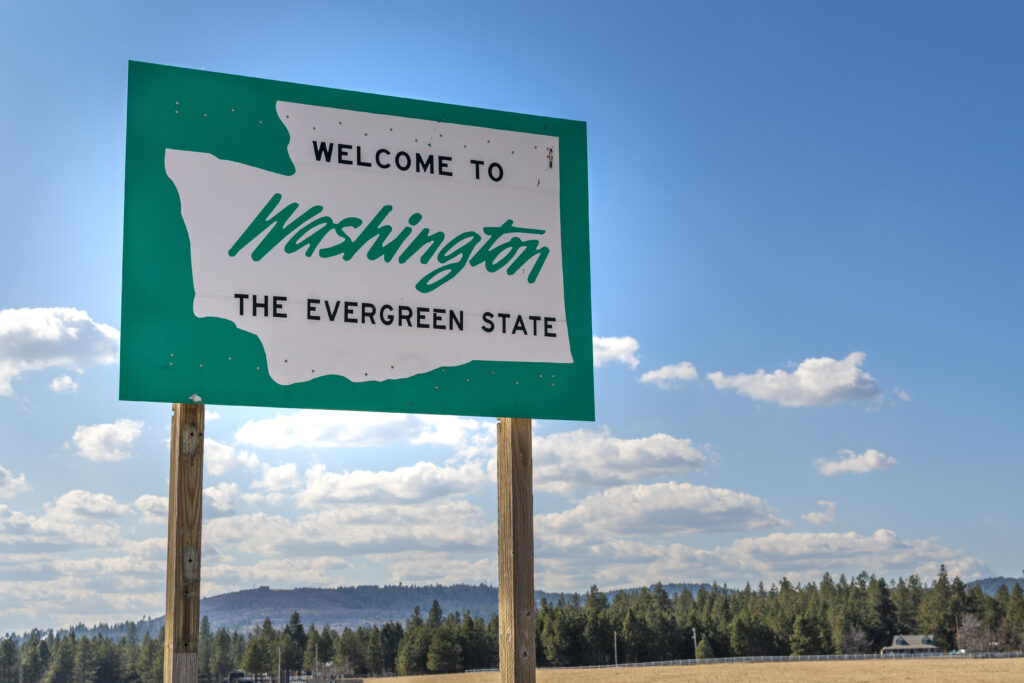Should states be allowed to require that cannabis licensees, including investors, live within their borders? Many states have tried to implement such residency requirements, ostensibly to protect small businesses and avoid federal scrutiny by keeping the money from crossing state lines. So far, however, constitutional concerns have led regulators to abandon such rules in every state but one: Washington.
If an Idaho investor’s lawsuit succeeds, the Evergreen State’s six-month residency requirement could soon fall as well, opening up Washington’s market to out-of-state investment.
At a July 23 hearing in the case, Brinkmeyer v. Washington State Liquor and Cannabis Board, Thurston County Superior Court Judge Mary Sue Wilson ruled against the plaintiff, Todd Brinkmeyer, reasoning that, as an Idaho resident, he does not have standing to sue under Washington’s constitution. Despite that setback, Mr. Brinkmeyer’s attorneys remain optimistic about their prospects.
“We were of course disappointed with the court’s ruling in the state case,” wrote Christine Masse of the Seattle law firm Miller Nash LLP in an email to MJBI. “The silver lining here though is that the federal court had stayed the federal claims pending the state court’s resolution of the state claims. And, as you know from looking at all the other successful federal cases across the U.S., most of those cases have gone in favor of the position we are advocating for here.”
A spokesperson for the Washington State Liquor and Cannabis Board (LCB) declined to comment on the case, as it is still actively under litigation.
Background on the Lawsuit
Mr. Brinkmeyer, a former sawmill executive from Post Falls, Idaho is a debt financier of several dispensaries in Washington State owned by his friend Scott Atkinson. He filed suit in June 2020 after the LCB advised the two men that, due to the residency requirement, Atkinson would not be allowed to sell or bequeath any equity ownership in his businesses to Brinkmeyer.
Brinkmeyer’s complaint seeks to strike down Washington’s residency requirement on the grounds that it violates his rights under the interstate commerce, due process, and privileges and immunities clauses of both the federal and state constitutions. It also charges that the LCB exceeded its authority under Initiative 502, the voter-approved ballot measure that legalized adult use in Washington in 2012.
In July 2020, the LCB requested that the case be moved to federal court in Tacoma. In November 2020, judge Benjamin Settle kicked the case back down to Thurston County Superior Court in Olympia, saying that a state court needed to sort out the state law questions before he would consider the federal issues.
In her narrow July 23 ruling, Judge Wilson said that, because Brinkmeyer lacks standing to sue, she would not consider the other state law questions raised in his complaint. The ruling also has no bearing on the federal constitutional claims in Brinkmeyer’s suit. Brinkmeyer has until August 30 to file an appeal.
Access to capital vs. social equity
Advocates both for and against Washington’s residency rule are watching the case closely.
The Washington CannaBusiness Association, which has lobbied for years to do away with the residency requirement, calls it an unconstitutional ban on access to capital. For example, industry insiders point out that prominent cannabis investors like rapper Jay-Z and comedians Cheech & Chong, who are major funders of Black- and Brown-owned cannabis companies, are unable to invest in Washington State businesses because of the rule.
Social justice activists counter that the residency requirement is a critical tool to protect access to the industry for small businesses, particularly BIPOC entrepreneurs from communities disproportionately impacted by the drug war.
“[We] are working hard to build an inclusive cannabis industry in our state,” said Aaron Barfield, president of Black Excellence in Cannabis. “Allowing out of state ownership will exponentially increase the difficulty of that work by allowing heavily capitalized, multi-state operators to enter the market, which will drive up the value of the licenses. This would raise the, already extremely high, barriers to entry for the Black, medical cannabis pioneers who have been at the forefront of the fight for diversity and inclusion.”




